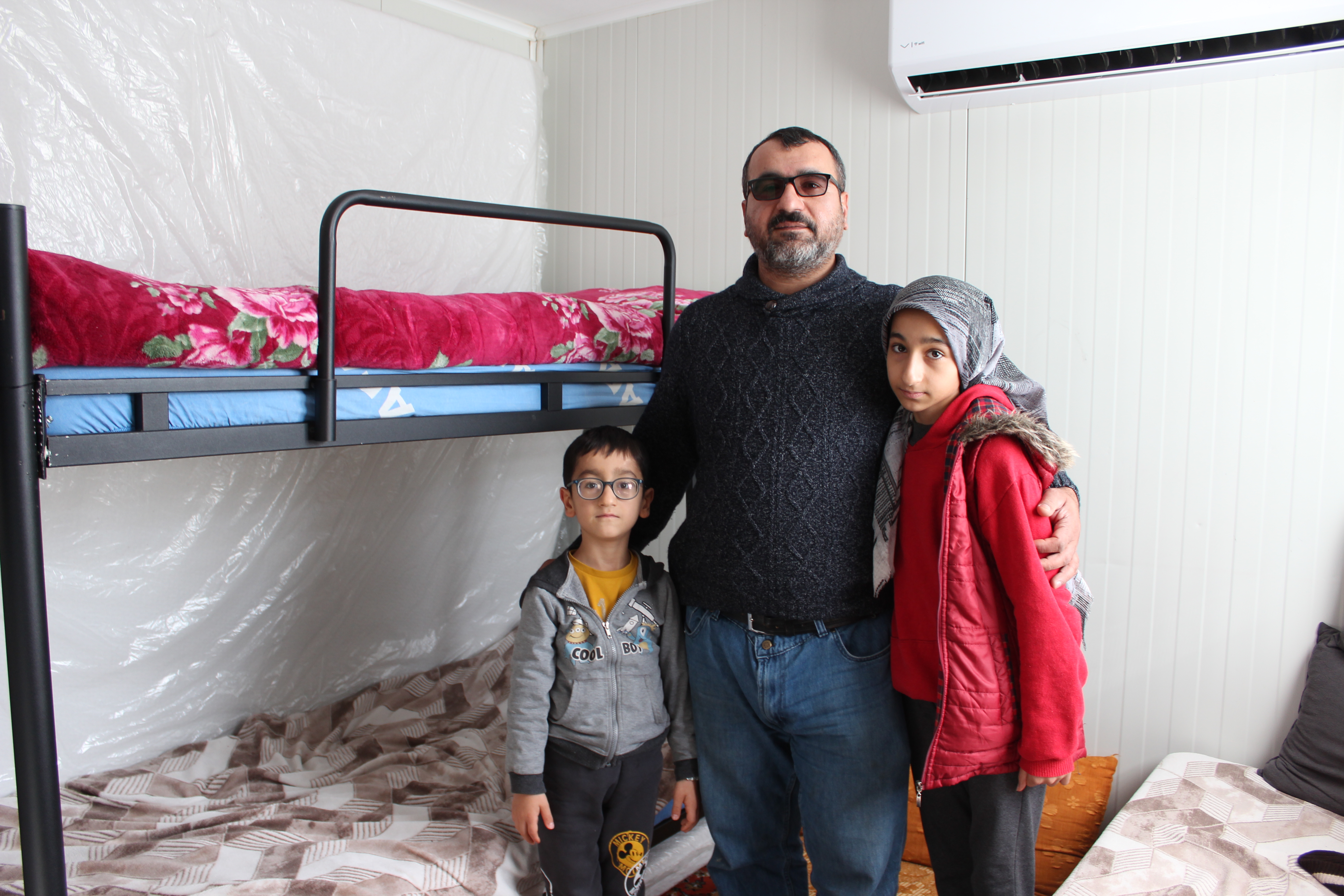
Besni, Turkey – Ahmet Firat steps out of the cramped confines of his container for a cigarette, and to share memories from last year’s earthquakes that he doesn’t want his children to hear about – details that continue to prey on his mind.
After the first magnitude 7.8 earthquake struck southern Turkey and northern Syria in the early morning of February 6, 2023, Ahmet, his wife, and their three children drove 50km (31 miles) from their heavily damaged home in Besni to Adiyaman, where most of their relatives lived.
The southeast Turkish city was a war-scape of collapsed and crippled buildings, and a second magnitude 7.5 earthquake later in the day compounded the carnage.
Over the next 10 days, Ahmet dug out the remains of 12 relatives.
“Sometimes we retrieved the body parts, piece by piece, not the whole body. Sometimes the parents were holding their kids and died like that. It really affected me psychologically,” he recalled, his soft voice becoming nearly a whisper.
“The sights and smells often come back to me. If I see a damaged building, I start to smell death, my brain automatically reminds me.”
More than 8,000 people are thought to have died in the earthquakes in Adıyaman province, with the official death toll in Turkey at more than 50,000.
When Al Jazeera first met the now 40-year-old plumber and construction worker and his family last February, they had just buried the last of their dead.
The family were living in a tent encampment in Adiyaman with dozens of other relatives. They had no electricity and faced gnawing cold and scouring winds that blew smoke from a wood-burning stove back into the tent.
The children were constantly ill and the adults took turns to guard the tents during the night. They had no idea what to do next.
A year later, Ahmet, his wife and their children Muhammed Ali, Havvanur and Emir now live in a prefabricated container on the edge of Besni.
They are among 689,101 people currently living in 407 container cities across the Britain-sized disaster zone in Turkey, according to the latest figures from Turkey’s disaster agency AFAD, out of an estimated three million displaced people.
But while the Firat family’s circumstances have improved since last February, they still grapple with the aftershocks of trauma as they struggle to rebuild their lives.
Container life
After a month in the tent last February, the family went to stay with the friends of a relative in a village in Mugla province, western Turkey.
Ahmet found work, although the higher cost of living there made it hard to survive.
But it was a break from the constant fear of earthquakes and the family started to get psychological support for their trauma.
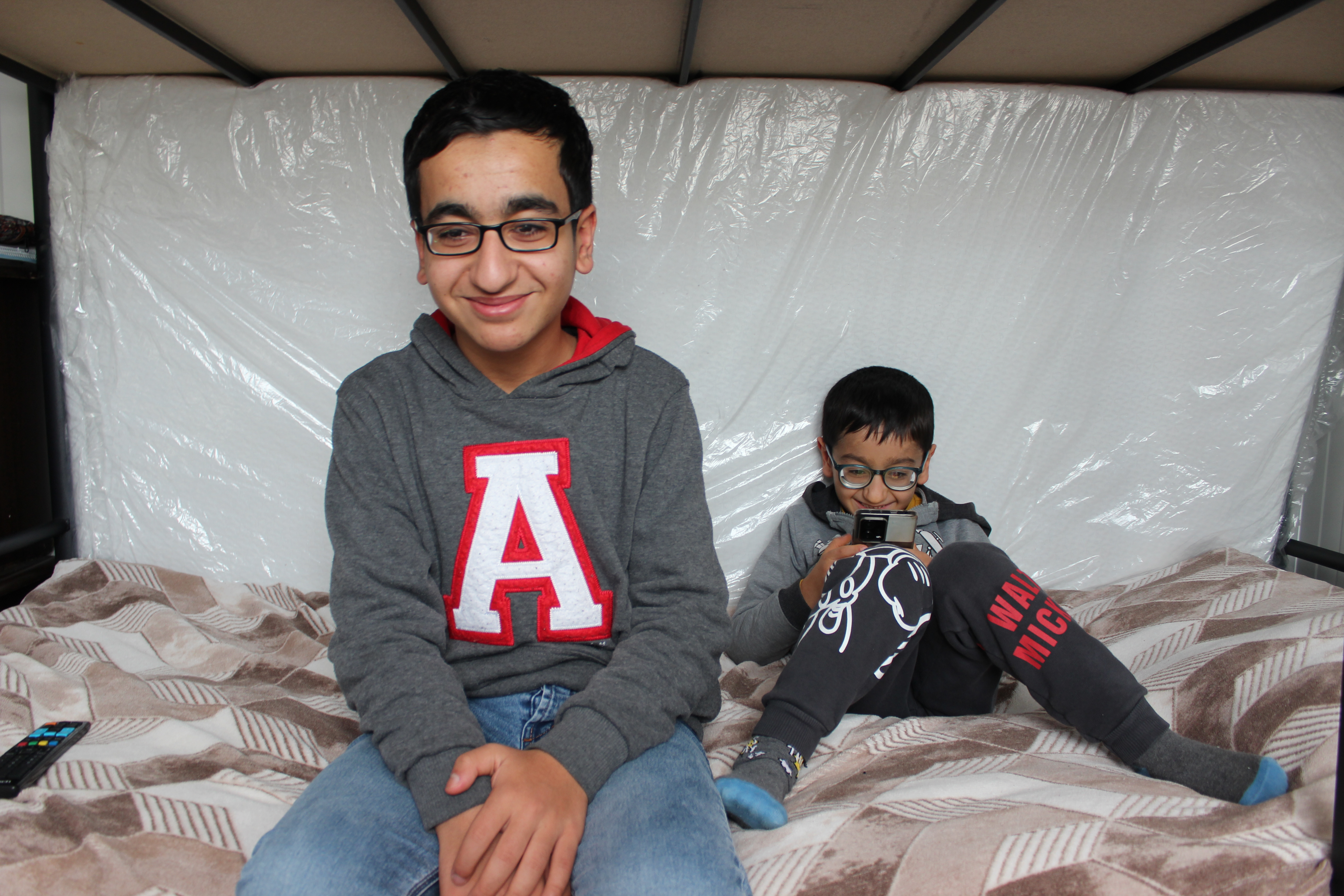
Then a relative back home died in a road accident and the Firats had to return to Adiyaman to support their extended family.
They spent another month back at the tent encampment until they were given a container in Besni.
Some 1,200 people live across about 300 containers in their settlement, which is on land belonging to a textile company. The streets are not much wider than a car.
At the entrance to the camp is a police station, a small grocery store, and a mobile library on a bus. Inside the camp, there’s a hairdresser in a container, small playgrounds, and a container mosque.
At the eastern edge of the camp, the densely packed containers give way to a vista of distant snowcapped mountains, offering some mental relief from the stifling walls and streets.
The Firat family’s container – two rooms and a tiny bathroom with a toilet and a shower – was empty when they arrived.
The children were shocked at how small it was – they had gone from a three-bedroom apartment of 170sq metres (1,800sq feet) to a “metal can” of 21sq metres (230sq feet), as 14-year-old Muhammed Ali put it.
They had only been able to salvage a few rugs and items of clothing from their old apartment.
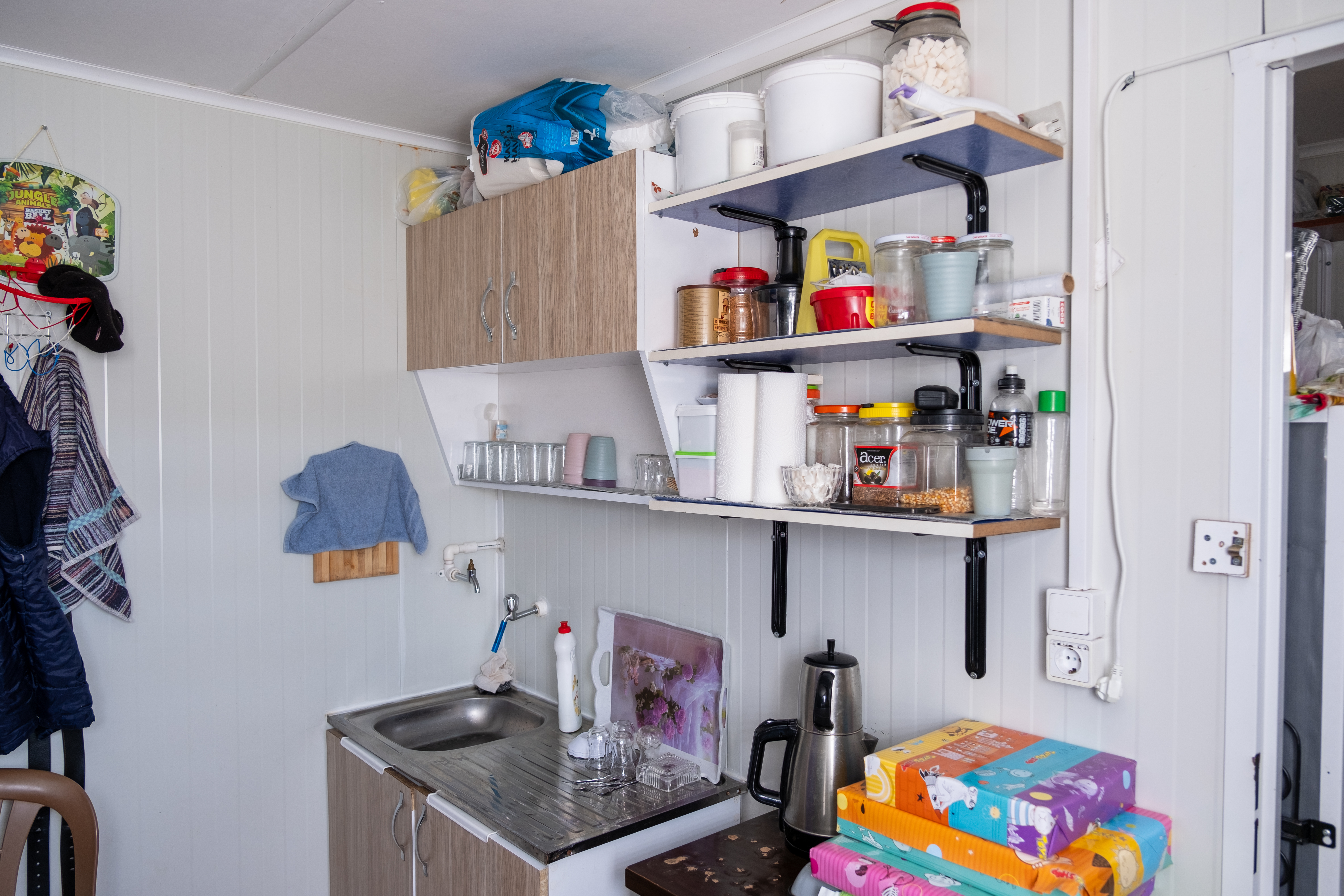
AFAD provided them with a bunk bed, mattresses, an electric oven, and a small fridge, and installed an air conditioning unit in the summer.
Ahmet applied sealant to cracks to stop rainwater leaking in and fixed tarpaulin and plastic sheeting as insulation. Over time they bought a second-hand washing machine and a bigger fridge.
While the container is toasty with heat from the air conditioning unit, humidity is now a problem as moisture rises from the ground and exacerbates coughs and colds.
“The container is much better than the tent, thank God. There’s running water, there’s no toilet issue, and you can lock the door, so we feel safer than in the tent,” Ahmet’s wife Ayten, 40, said.
“But if you start to compare the container to our old apartment, you can’t live in the container. The kids argue with each other a lot because they have no space.”
Meanwhile, the earthquake has left the family impoverished. Although Ahmet can find work, wages are low and eclipsed by soaring inflation.
He earns 500 Turkish lira ($16) a day when he does find work, which could be 10 to 20 days a month.
“So, I work, but at the same time I’m losing money,” he said.
The family received a one-off 10,000 lira ($327) payment from the state and had an AFAD card topped up with 3,000 lira ($98) a month to use in the supermarket.
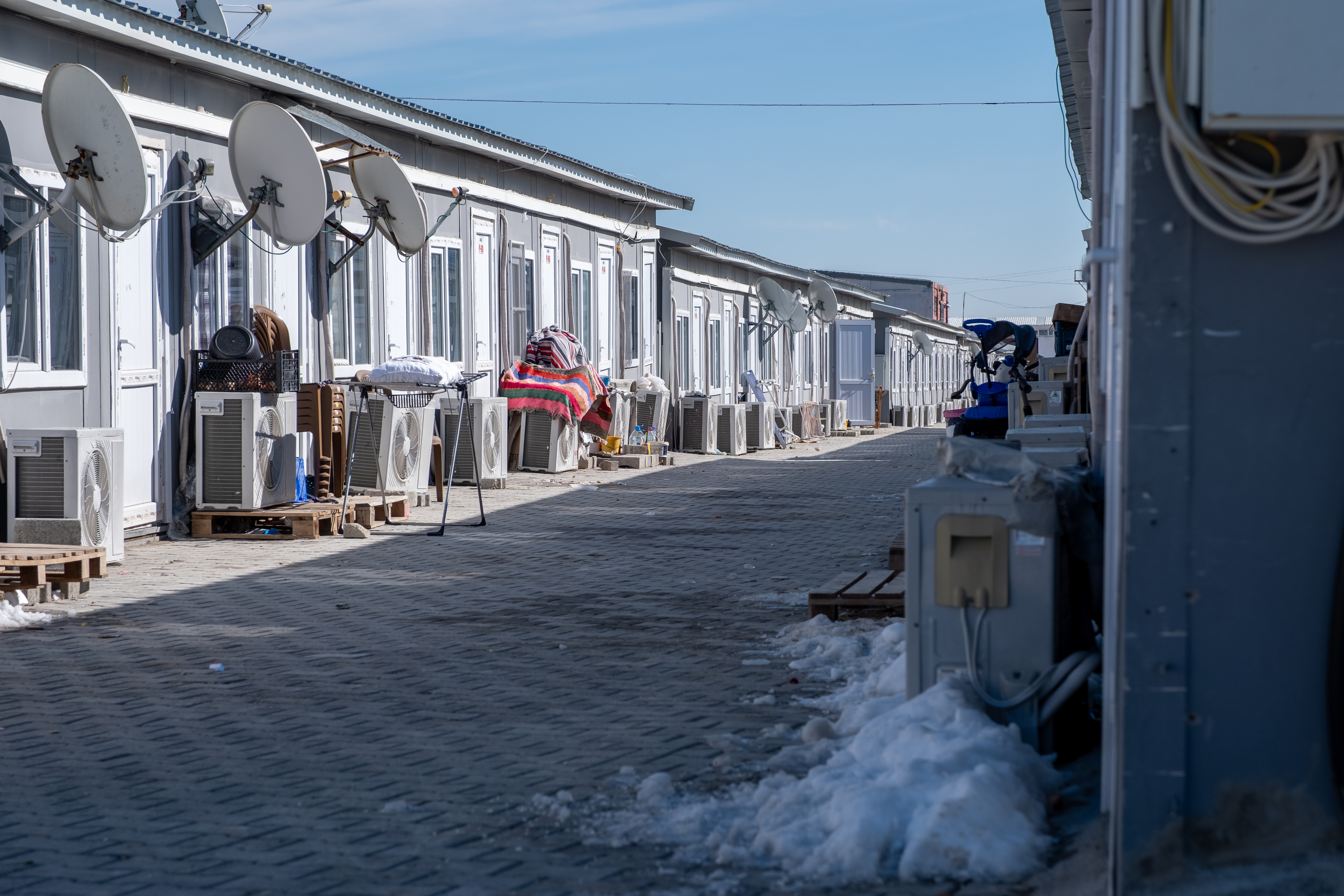
But they cannot afford to replace seven-year-old Emir’s bottle glasses, which are no longer strong enough, or 11-year-old Havvanur’s glasses, lost months ago while swimming in Mugla. “Greece has them now!” she said.
They also cannot return to their old apartment in Besni and, as renters not homeowners, they do not qualify for housing being built for earthquake survivors by the government-backed housing agency, TOKI.
About 70 percent of the buildings in Adiyaman city were destroyed or damaged, and the scarcity of safe properties means rents have soared by about 300 percent and are now well out of reach for Ahmet.
He says it is hard to see a way out of the container for the family unless rents fall dramatically when state-built housing for earthquake survivors becomes available. Meanwhile, their container may not be available to them beyond another 18 months or so.
Despite their hardships, the family count their blessings because they are still more fortunate than many.
The NGO Hayata Destek (Support to Life) reported recently that some displaced people in Adiyaman are still at risk from contaminated water and that containers are vulnerable to rain and cold. They also found that many refugees are living in heavily damaged buildings or makeshift tents and many children struggle to access education.
And many families have suffered even greater losses than the Firats.
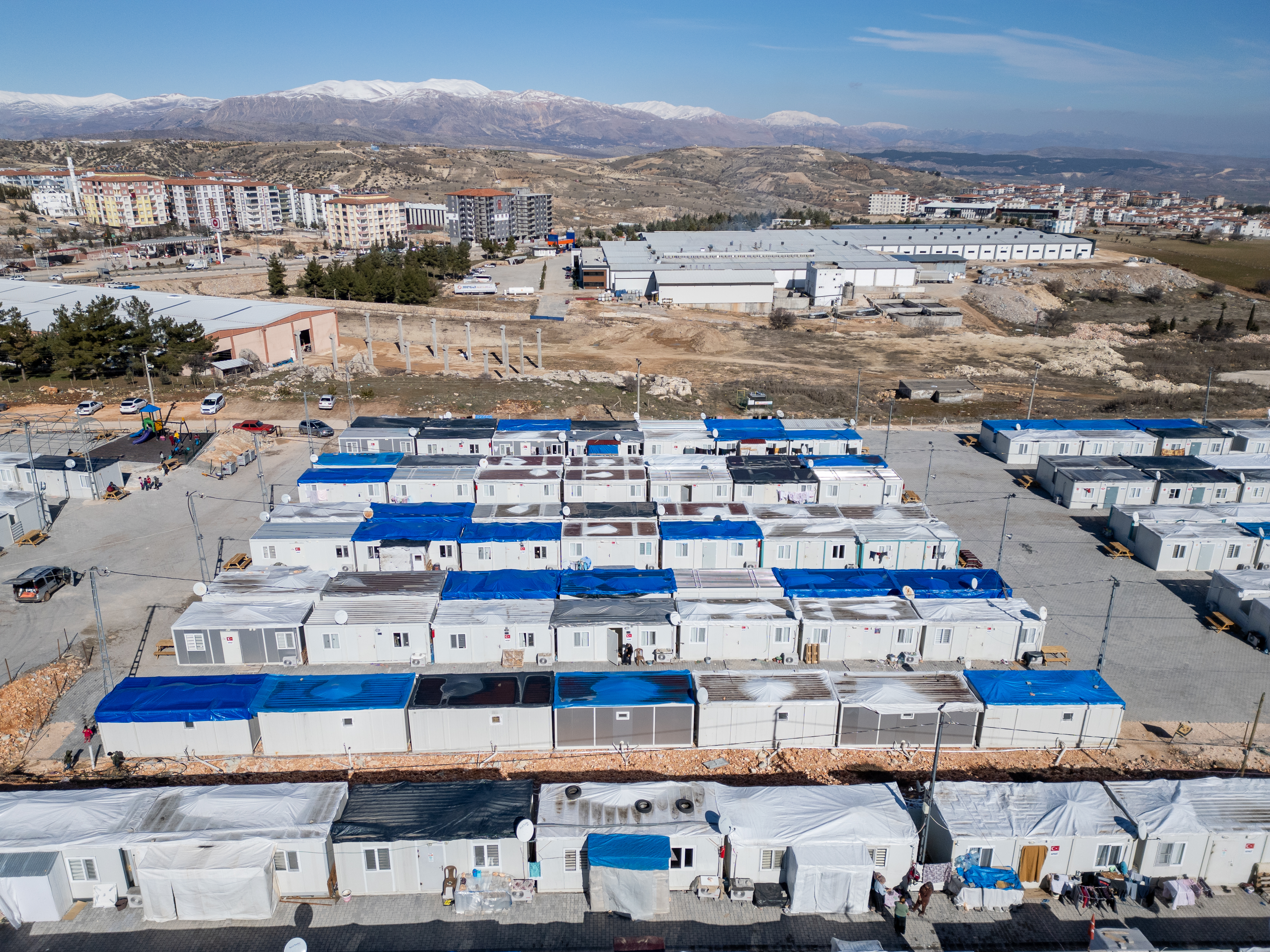
“So if compare us with them we are lucky, thank God,” Ayten said.
‘We’re afraid of dreams’
One of the Firat family’s hardest battles remains psychological.
They often think back to that day in February last year when they huddled in the corner of a room as the building shook violently and shed its outside walls, as well as the subsequent days full of death, fear and suffering.
“We lost the connection with life – I didn’t want to work, didn’t want to relax, the happiness went, what motivated me went,” Ahmet said.
He was furious over what he’d seen and heard in years of working in the construction industry; the corners cut and shoddy materials used in the pursuit of contractor profits, the bribes paid to officials for them to look the other way.
“After our losses, I was angry that these buildings weren’t strong enough to save people – it was like murder,” he said.
He said psychological support has helped but it was his responsibilities that ultimately brought him out of months of despair.
“At some point, I accepted it happened, it’s in the past, and I have to focus on work because I have kids to take care of,” he said.
“But those we lost are always in our minds.”
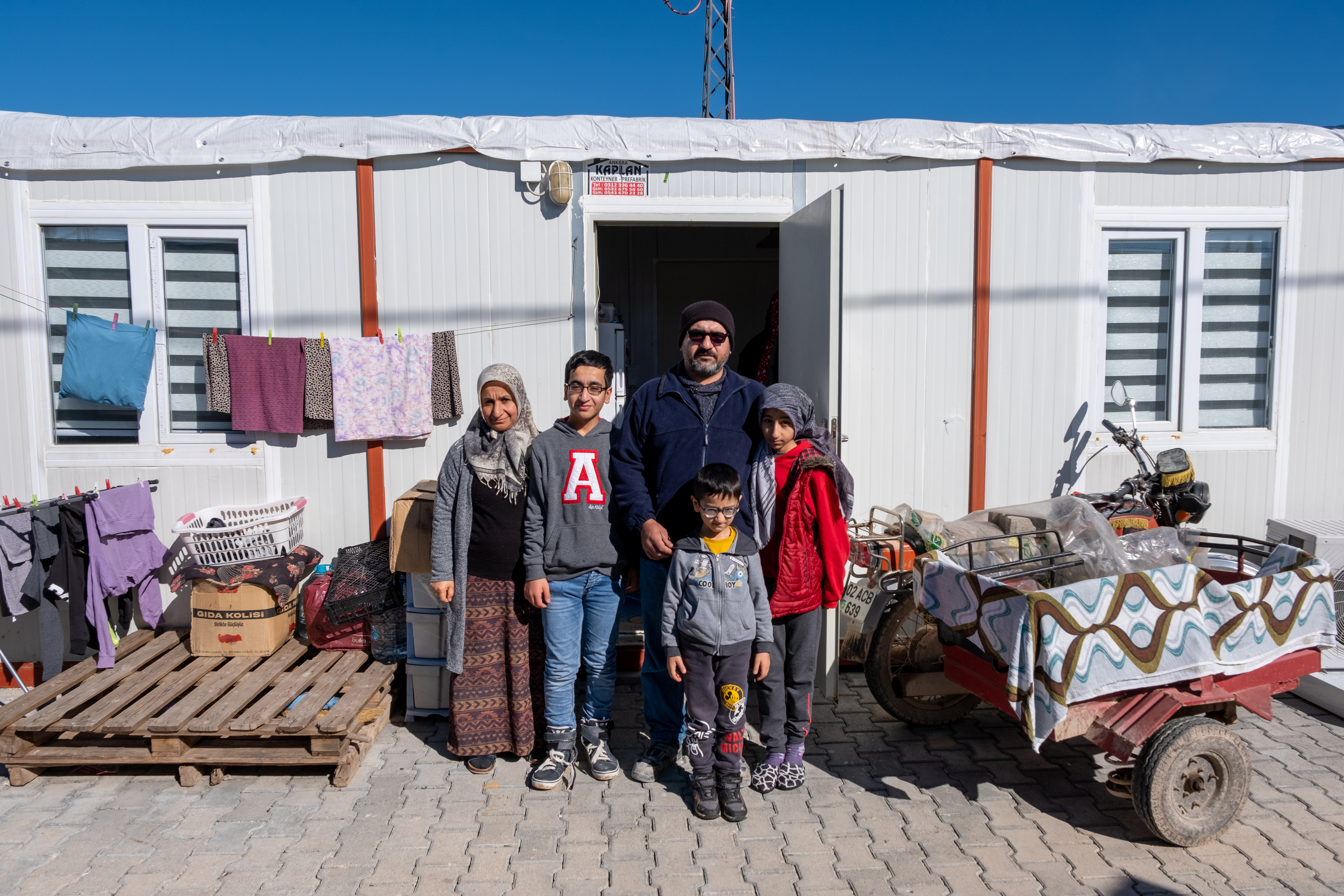
While Muhammed Ali and Havvanur pine for more space, they try to keep themselves busy with schoolwork and maintaining good grades; he wants to join the police, while she wants to become an ophthalmologist so she can help the many members of her family with eye problems.
But Emir, the youngest, refuses to go to school and covers his ears whenever the subject is raised.
“He always wants to keep his mother in sight because he’s still so afraid of earthquakes,” Ahmet said.
Meanwhile, there’s little sense of community in the container village – the cramped spaces are not conducive to visitors, and people generally prefer to keep to themselves.
“The earthquake also took people’s love of life, tolerance, happiness, it took everything – we became robots, we’re the not the same as before,” Ahmet said.
The family members have become angrier and more aggressive with each other amid their stress, but Ayten said the disaster also brought them closer together and left them with the sense that life is something precious to be appreciated.
“[We now know] there is no guarantee of life. When you sleep you might not wake up,” she said. But they are also left fearful of life’s fragility and with a depleted sense of the future.
“Before the earthquake I was dreaming of the future, looking like five years ahead,” Muhammed Ali said. “Now I can’t even think five minutes ahead. We’ve stopped making plans.”
“We had dreams before,” his father added.
“Now we are afraid of dreams because they all get destroyed.”





